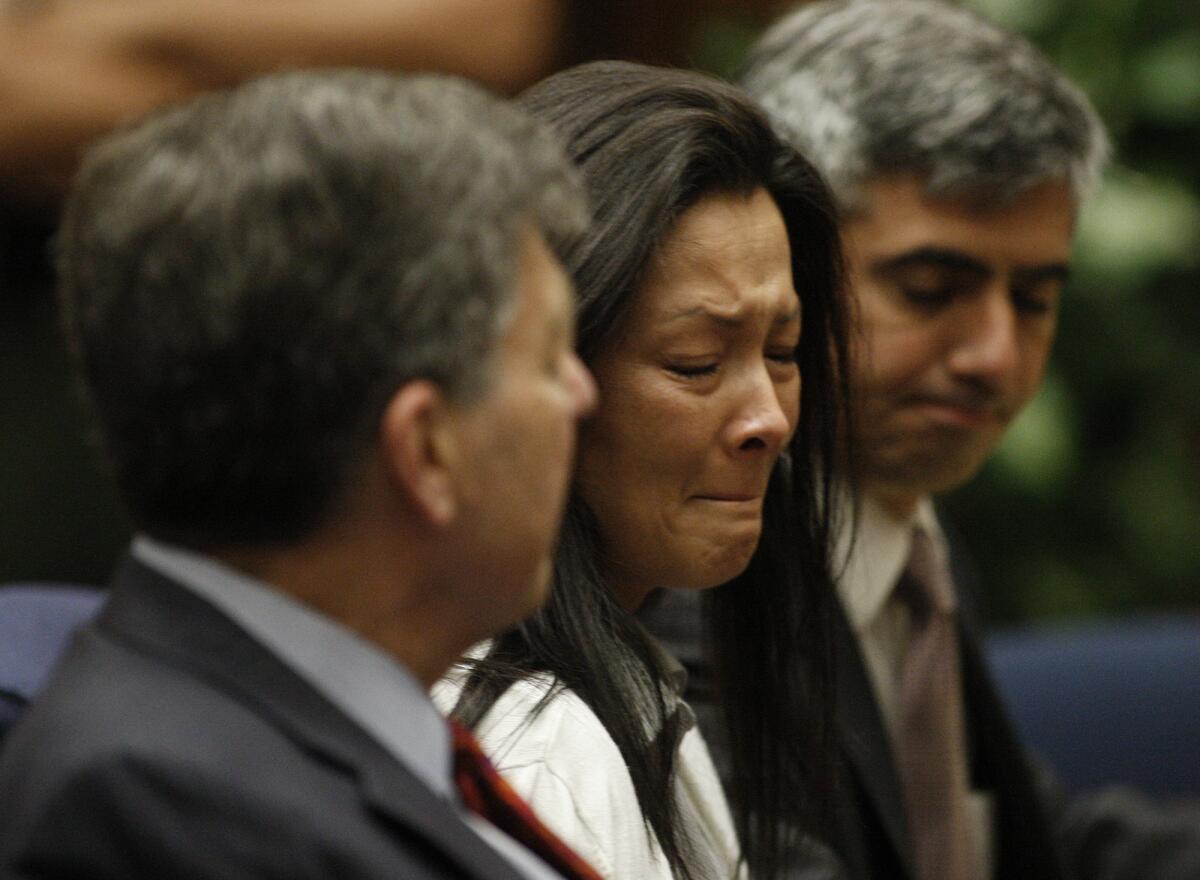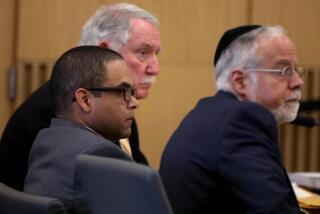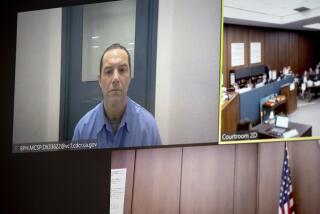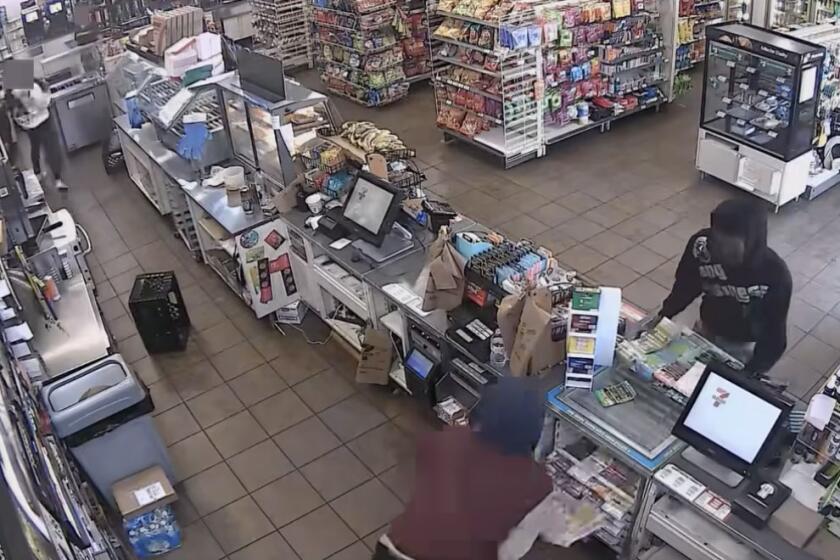Woman acquitted of murdering model sues Santa Monica police

Kelly Soo Park reacts in 2013 after being found not guilty of strangling 21-year-old Juliana Redding in her Santa Monica residence in 2008.
A woman acquitted of murder last year in connection with the high-profile slaying of an aspiring model filed a lawsuit Wednesday accusing Santa Monica police of intimidating witnesses and damaging her reputation.
Kelly Soo Park, 48, alleges three witnesses who planned to testify on her behalf were scared off or tainted by Santa Monica Police Det. Karen Thompson.
“We just want to present to the world and to the court that what’s being portrayed in the media now is an incomplete story,” Park’s attorney, Ron Kaye, said of the lawsuit. “What we would have hoped is rather than putting Park through a jury trial, police had looked at who would have been motivated to murder Juliana Redding.”
The case stems from the strangling of 21-year-old Redding in her Santa Monica home in March 2008. Female DNA belonging to a possible suspect was found on items at the scene, including on Redding’s neck. Two years later, Thompson matched the samples to Park’s DNA.
Prosecutors alleged a Beverly Hills doctor sent Park to shake down Redding in hopes that it would convince the young woman’s father to reconsider a business deal he had just dropped with the doctor. Redding had previously been friends with the doctor too.
But a judge ruled there was insufficient evidence for prosecutors to present that possible motive during trial, leaving DNA evidence as the crucial link between Park and Redding’s death. Park’s lawyers argued her DNA could have transferred to Redding’s home through a third party.
Last June, a Los Angeles jury found Park not guilty, a result that crushed Redding’s family and surprised even some defense experts.
Park, who co-owns a restaurant, alleges in the lawsuit that she’s entitled to damages because despite being freed she’s suffered from “extreme and severe mental anguish” as a result of Thompson and other unidentified police officers interfering with her ability to present “the most complete defense.” So despite being acquitted, she’s been portrayed by the media “as essentially ‘getting away with murder.’”
According to the lawsuit, Melissa Ayala was prepared to testify that she entered into a romantic relationship with Redding’s ex-boyfriend after her death. Ayala told defense investigators she was choked by the boyfriend three times, including when he said, “You want to see how she [Juliana] felt?”
But Park alleges Thompson intervened a week later to dissuade Ayala from taking the stand. In a recorded call between Thompson and Ayala cited in the lawsuit, Thompson tells her Redding’s ex-boyfriend is not the killer. Plaintiff’s investigators, Thompson said, “are going to tell every lie they can to try and get her off,” the suit alleges.
The lawsuit also accuses Thompson of having Ventura authorities arrest a man described by prosecutors as Park’s boyfriend, to get him to testify against Park.
Thompson said in an email cited in the lawsuit she wanted to “twist” the boyfriend “to see if we can flip him.” The detective added that she hoped he harbored “harsh feelings toward the lovely Ms. Park.”
The lawsuit also contends Thompson took a different approach with Park’s then-fiance and now husband Thomas Chronister, a retired Oxnard Police Department commander. Thompson allegedly called department officials in hopes of “sullying his reputation and calling his ethics into question” to weaken his credibility as a witness on Park’s behalf.
Thompson and the Santa Monica Police Department declined to comment Wednesday. The Los Angeles County district attorney’s office also declined to comment.
A year before Park’s trial, the police department rewarded Thompson with a Medal of Merit for solving the case.
“Detective Thompson wanted to make sure the basis for her medal was never undermined,” Kaye said.
Twitter: @peard33
More to Read
Start your day right
Sign up for Essential California for news, features and recommendations from the L.A. Times and beyond in your inbox six days a week.
You may occasionally receive promotional content from the Los Angeles Times.







